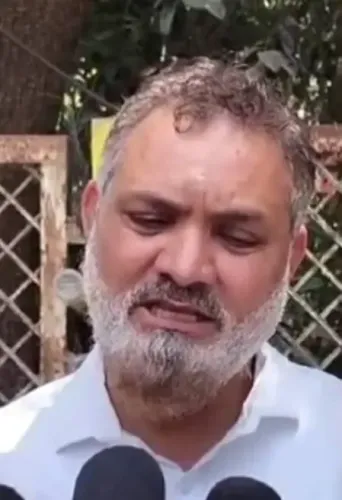What Actions Are Being Taken by Pakistan's Parliamentary Panel on Child Abuse at Religious Seminaries?

Synopsis
Key Takeaways
- Senate Committee reviews child abuse reports.
- Calls for strict regulations in religious seminaries.
- Emphasis on child protection training for educators.
- Need for transparent monitoring and accountability.
- Legislative reforms are necessary for integrating madrasas into the education system.
Islamabad, Sep 20 (NationPress) The Senate Functional Committee on Human Rights of Pakistan has examined alarming reports of corporal punishment, torture, and sexual abuse of children in religious seminaries across the provinces of Punjab, Sindh, and Khyber Pakhtunkhwa, as reported by local media.
During the meeting, which was chaired by Senator Samina Mumtaz Zehri at the Parliament House, there was a call for decisive measures to safeguard children from maltreatment in seminaries and schools. The senator emphasized that no child should endure suffering under the guise of education.
Senator Zehri pointed out that the primary responsibility for protecting children lies with Pakistani authorities. She raised concerns regarding the absence of proper registration, financial transparency, and oversight of these institutions.
She advocated for stringent measures, including the implementation of regular inspections in madrasas, obligatory parent-teacher interaction, teacher training focused on child protection, and a prohibition on corporal punishment. She also highlighted the troublingly low conviction rates in reported abuse cases, warning that without proper prosecution and deterrence, the cycle of abuse may persist.
Senator Aimal Wali Khan remarked that many madrasas have transitioned into profit-generating entities rather than being incorporated into the national education system. He stressed the necessity for legislative actions to ensure transparency and to integrate seminaries into mainstream educational frameworks.
Other committee members proposed district-level monitoring and standardized provincial laws to shield children from abuse, as reported by Pakistan’s prominent newspaper, Dawn.
The committee also addressed a case at COMSATS University in Islamabad, where a student faced derogatory comments regarding his financial status and deceased father during a class presentation in June. The issue was ultimately resolved with the instructor gifting a laptop to the student.
Senator Zehri asserted that such incidents are indicative of pervasive issues within Pakistan, emphasizing that no student should be subjected to humiliation based on financial status, which can lead to enduring psychological damage. She called for universities to cultivate an environment of compassion and respect, recommending training for both teachers and students in communication, tolerance, and mental health awareness.
The meeting also covered the situation of Pakistani citizens imprisoned abroad. Zehri advocated for enhanced measures, including systematic case tracking, country-wise data collection, and transparent reporting. She urged the ministries of Pakistan to create a unified national strategy with clear timelines for legal aid, consular support, and rehabilitation for returnees.









